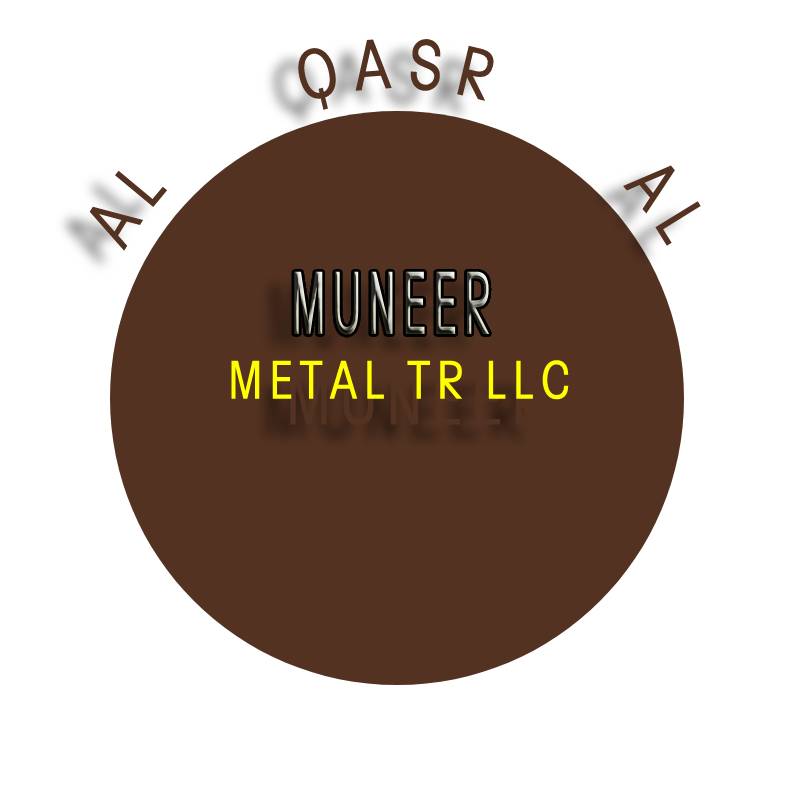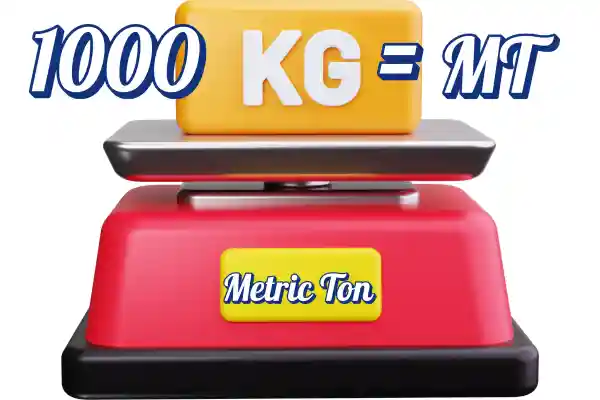What is a Metric Tons mt?
MT, also known as a tonne, is a unit of mass used primarily in countries that have adopted the metric system. One MT is equal to 1,000 kilograms or approximately 2,204.62 pounds. It is commonly abbreviated as ‘MT’ and is widely used in industries dealing with bulk goods and commodities.
Importance of Metric Tons to Tons in Global Trade
The metric ton to ton is a fundamental unit in international trade, particularly in sectors such as mining, agriculture, shipping, and manufacturing. Due to its standardized value, it facilitates trade agreements and transactions between countries, especially those using the metric system.
Metric tons to kg conversion is essential for industries dealing with bulk materials. One metric ton to kg equals 1,000, simplifying weight calculation for logistics, shipping, and trade. Understanding the difference between tons and kilograms is crucial for accurate data in global commerce.
The metric ton kg conversion is widely used in countries like the UAE, Pakistan, and India for accurate weight measurement in industries such as shipping, manufacturing, and agriculture. One metric ton kilogram equals 1,000 kg, making it essential for handling bulk materials and trade.
This standard unit ensures consistency and accuracy, especially in global logistics and commercial transactions between these countries.
Metric Ton Convert to KG
Converting a metric ton to Kilograms is a simple process used widely across industries to ensure accurate weight measurement. The formula to convert metric tons to kilograms is as follows:
Kilograms (kg) = MT × 1000
How to convert= 1 metric tonne to kg
For example, for conversion of 1 metric ton in kg, the conversion would be:
1 × 1000 = 1000 kg
For example, for conversion of 2 metric tones to Kg, the conversion would be:
1 × 1000 = 1000 kg
If you have 4 MT, the conversion would be:
4 × 1000 = 4000 kg
How to convert metric tonnes to lbs
Converting metric ton to lbs is essential when working with different measurement systems. The formula to convert metric ton in lbs is:
Pounds (lb) = MT × 2204.62
Example:
If you have 1 metric ton, the conversion would be:
1 × 2204.62 = 2204.62 lb
How to convert lbs to metric tons
Converting metric ton lbs is essential for industries that handle heavy weights, especially in international logistics. The formula to convert pounds (lbs) to MT is:
MT = Pounds (lbs) ÷ 2204.62
Example:
If you have 5000 lbs, the conversion would be:
5000 ÷ 2204.62 = 2.268 MT
Usage of Metric Ton in UAE
In the Gulf nations, the metric ton MT is commonly used in various industries, including metal scrap shipping, construction, and oil and gas. Due to the country’s adoption of the metric system, the metric ton (1,000 kg) is the standard unit of mass for large-scale transactions and industrial processes.
Applications of Metric Ton
- Shipping and Logistics: Freight and cargo are often measured in metric tons, helping standardize shipping costs and logistics planning.
- Agriculture: Grain, fertilizer, and other bulk agricultural products are typically weighed in metric tons.
- Mining and Metals: The output of minerals and metals is frequently reported in metric tons.
- Industrial Production: Many manufacturing processes measure raw materials and finished products in metric tons for consistency and efficiency.
- Environmental Data: Carbon emissions and waste management often utilize the metric ton as a unit of measurement.
Differences Between Metric Ton, Short Ton, and Long Ton
- Metric Ton (MT): 1,000 kilograms (2,204.62 pounds)
- Short Ton (US Ton): 2,000 pounds (907.18 kilograms)
- Long Ton (Imperial Ton): 2,240 pounds (1,016.05 kilograms)
Why Use Metric Ton?
The metric ton is favored in global trade due to its simplicity and alignment with the metric system, which is internationally recognized. It reduces confusion and makes it easier for businesses to conduct transactions involving heavy or bulk goods.
Conclusion
Whether in international shipping, industrial production, or environmental measurement, the metric ton remains an indispensable unit. Understanding its application and differentiation from other types of tons is crucial for accurate measurement and global commerce.

